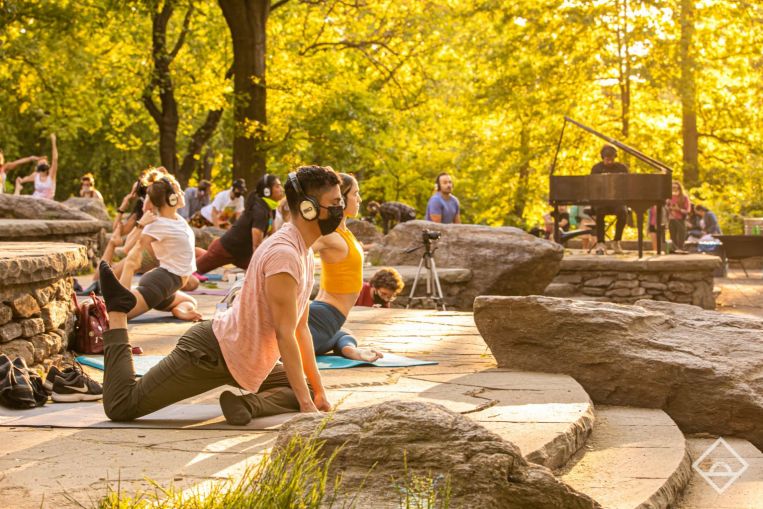NEW YORK (NYTIMES) – One year into the coronavirus pandemic, after months of gaining weight and feeling groggy, Ms Mayra Ramirez stopped drinking.
And this summer, she’ll mark a new milestone for her sobriety: a completely alcohol-free vacation.
Ms Ramirez, 32, spent the first 12 months of the pandemic working remotely from a tiny Brooklyn apartment, drinking every weekend and many weekday evenings as well. In March, like many others during this hard year, she realised her drinking was spiraling beyond the merely social kind.
She has now been sober for three months. So when she began scouting locations for a break with a few non-sober friends, she suggested Sedona, Arizona, where they all will hike and wake up early, and she will avoid potential pitfalls like nightclubs and beachfront bars.
Many Americans turned to alcohol to blunt the stress, isolation and fear of the past 15 months: An October study in JAMA Network Open, the journal of the American Medical Association, found that Americans were drinking 14 per cent more than in the previous year.
Now, as vaccination levels rise and Americans head back to the roads and skies, sober travel, a subset of vacations once relegated only to 12-steppers and recovering addicts, is going mainstream.
In a June poll of more than 23,000 people by Branded Research, 29 per cent of respondents said they planned to take an alcohol-free trip after the pandemic.
Forty-seven percent of the respondents to American Express’ Global Travel Trends Report in March said that wellness and mental health were among their top motivators for travel in 2021.
Even airlines are going dry: After banning booze in the cabin in 2020, several airlines are postponing a return to serving alcohol thanks to unruly passengers.
Ruby Warrington, who published the book Sober Curious in 2018, has been fielding regular questions about sober travel in her eponymous Facebook group, where membership has swelled in the last year. She followed that book up in December 2020 with The Sober Curious Reset, a 100-day guide to rethinking your relationship with alcohol.
Both of Warrington’s books have tapped into the global movement of “sometimes sobriety” that has been marked by trends like Dry January and #mindfuldrinking.
“The pandemic really shone a light on our drinking habits,” Warrington said. She herself quit drinking in 2016, and found travel to be the last and most daunting hurdle.
“Vacation drinking is definitely the drinking that I held on to the longest. It was the one hall pass I gave myself,” she said. “A lot of people have looked at their drinking habits during the pandemic and don’t want to go back to what they were. And they don’t want a vacation to get in the way of their progress.”
Sober travel is a close cousin of wellness tourism, a sector valued at nearly US$736 billion (S$988 billion) and expected to grow by US$315 billion by 2024, as the pandemic has amplified our desire to optimise our health.
“Wellness travel, and sober travel being part of it, will become more compelling for individuals who want to keep their immune systems strong,” said Ms Wendy Bazilian, an exercise physiologist in San Diego.
“Post-pandemic, we will be craving a lot of different resets.”
In cities, too, options for alcohol-free fun are expanding. Spire 73, the open-air bar atop the Intercontinental Los Angeles Downtown, has responded to a demand for virgin drinks by adding nonalcoholic wines to its bottle-service menu; at Regent Singapore, mocktails at the acclaimed Manhattan Bar are being concocted with freshly squeezed juice and steeped tea infusions.
Alcohol-free morning raves, like Daybreaker and Morning Gloryville, had to go virtual during the pandemic, widening their global audience.
As in-person parties return, organisers say, more travellers are arriving on the drug-free dance floor.
Newly sober or sober-curious travellers should plan ahead, said Ms Holly Sprague, co-founder of Dry Together, an alcohol-free online community for midlife moms, by scouting out sites for mocktails and rethinking habits like drinking at airports.
Ms Sprague, 46, has been dry for nearly three years. Ms Megan Barnes Zesati, her co-founder, is also 46 and on her fourth year dry.
“During my vacations these days, I’m as likely to enjoy a sunrise as a sunset,” Ms Zesati said. “On past vacations I rarely took advantage of mornings. Now they are my favourite times.”













































